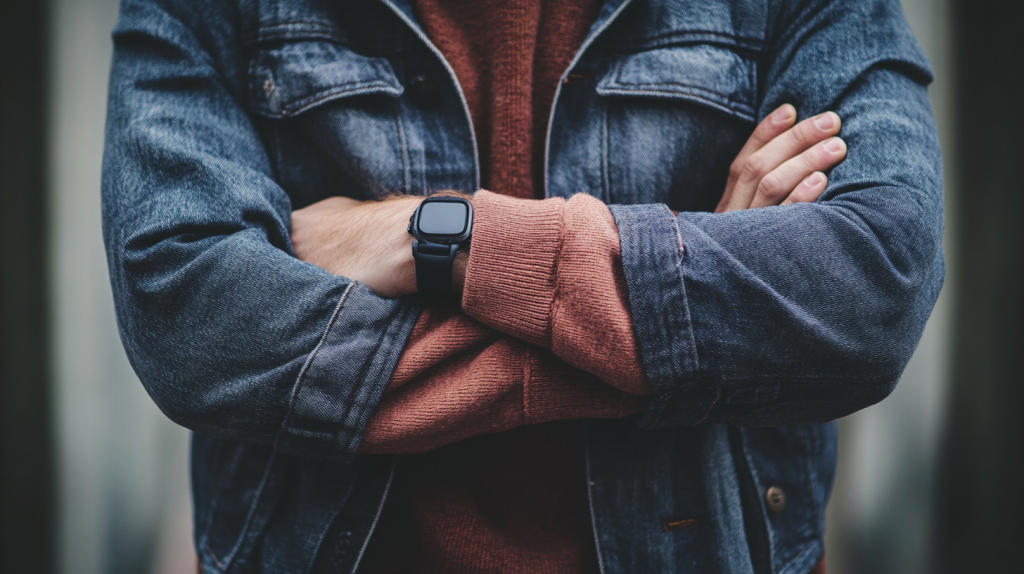I used to think trust was all about what I said, but I’ve come to realize that body language plays a huge role in how people see us. Without even meaning to, I’ve caught myself doing little things that might make me seem unreliable or like I’m hiding something.
Whether I’m at work, hanging out with friends, or meeting someone new, I’ve learned that my body often speaks louder than my words. The tricky part is, these signals are subtle, and I didn’t even know I was sending them! So, I put together 15 body language mistakes that I’ve noticed (and sometimes made) that can make you look untrustworthy—and how to fix them.
Avoiding Eye Contact

One of the clearest signs of dishonesty is avoiding eye contact. When you don’t meet someone’s gaze, it can seem like you’re hiding something or feeling nervous. While too much eye contact can feel intimidating, making a conscious effort to maintain steady eye contact shows you’re engaged and honest.
Fidgeting Constantly

Fidgeting can make you look nervous or impatient, and people might think you’re uncomfortable with the truth. Whether you’re tapping your fingers or shifting in your seat, this type of restless movement can distract from your message and make you seem unreliable.
Crossing Your Arms

When you cross your arms, it can come across as defensive or closed off. Even if you’re just cold or comfortable in that position, others might see it as a sign that you’re not open to communication or, worse, that you’re hiding something. Keep your arms relaxed and open to project trust.
Fake Smiling

A fake smile is easy to spot. If your smile doesn’t reach your eyes, people will sense the insincerity. Genuine smiles are associated with warmth and trust, while forced smiles can make others feel uneasy, leading them to question your authenticity.
Shifty Eyes

Even if you’re making an effort to maintain eye contact, darting your eyes around the room can give off the impression that you’re searching for an escape or avoiding the truth. It’s better to focus your attention on the person in front of you and avoid glancing around too much.
Overly Firm Handshake

While a weak handshake can seem unconfident, an overly firm one can feel aggressive or overcompensating. Finding the right balance is key. A firm but not crushing handshake communicates confidence without coming across as trying too hard to control the situation.
Poor Posture

Slouching or hunching over makes you look insecure or disinterested, both of which can raise suspicion. On the other hand, standing or sitting up straight with your shoulders back projects confidence and credibility, making people more likely to trust you.
Touching Your Face

Frequent face touching, especially during conversations, can make it seem like you’re nervous or lying. Whether it’s scratching your nose or rubbing your chin, this habit can lead people to believe you’re uncomfortable or hiding something.
Over-Exaggerated Gestures

Big, sweeping gestures can seem theatrical and insincere. When your movements are too exaggerated, people may feel you’re trying too hard to sell your point, which can actually make them more skeptical. Keeping your gestures calm and natural will make you appear more trustworthy.
Tapping Your Foot

Much like fidgeting, tapping your foot can signal impatience or nervousness. It’s a small movement, but it can be distracting and might make others feel you’re uneasy or trying to hide something.
Speaking Too Fast

When you speak too quickly, it can make you seem like you’re rushing through what you have to say, which can come off as anxious or deceptive. Speaking at a calm, steady pace helps you appear more thoughtful and genuine, encouraging others to trust your words.
Inconsistent Facial Expressions

If your facial expressions don’t match what you’re saying, it can make others doubt your sincerity. For example, if you’re saying something serious but have a smile on your face, it creates confusion and mistrust. Try to keep your facial expressions aligned with your message.
Constantly Checking Your Phone

Glancing at your phone during a conversation can signal disinterest or distraction, making the other person feel undervalued. This lack of attention can come off as dismissive or shady. Putting your phone away shows respect and focus, which builds trust.
Nervous Laughing

Laughing at the wrong moment, especially during serious conversations, can make you seem insincere or uncomfortable. While laughter can ease tension, nervous or out-of-place laughter might give the impression you’re not taking things seriously.
Shrugging Too Often

Shrugging can indicate uncertainty or indifference. While it’s a natural gesture, overusing it can make people question how confident you are in what you’re saying. Standing firm in your posture and avoiding too much shrugging helps you come across as more trustworthy and assured.
21 Things Pilots Are Forbidden to Do During Flights

Have you ever wondered what rules pilots must follow while they’re in the cockpit? Being a pilot is a job that comes with a lot of responsibility and a strict set of rules to ensure the safety of everyone on board.
These rules ensure that pilots maintain the highest standards of safety and professionalism while flying. By adhering to these guidelines, they help ensure that every flight reaches its destination safely.
Read More: 21 Things Pilots Are Forbidden to Do During Flights
Ellen has been obsessed with logic puzzles, jigsaws, and cryptograms since she was a kid. After learning she was taught how to play chess wrong by a family friend (so they could win), she joined her school chess club and the rest is history.


